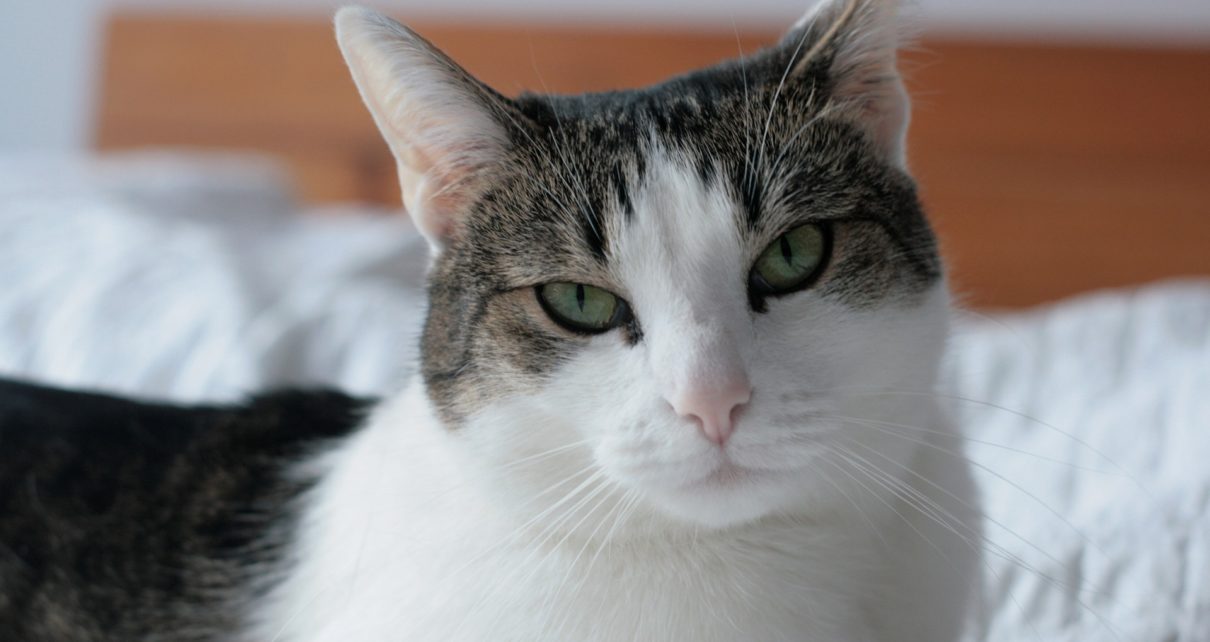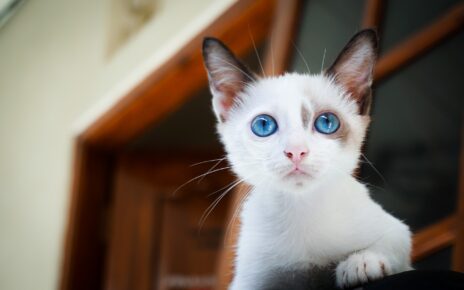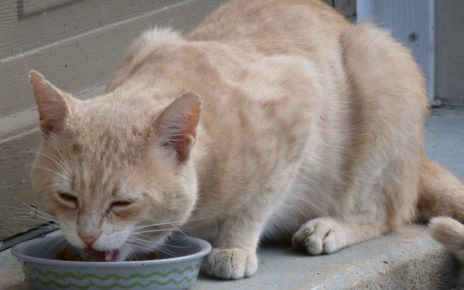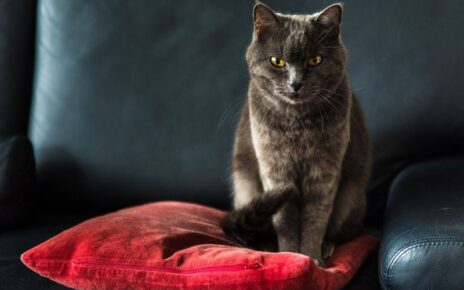If your cat is exhibiting behavioral problems like excessive aggression or fear, you are probably willing to try anything that will help you and your cat out. And during your research, you may have come across pheromones as a possible solution to your cat’s problems.
As a responsible cat owner, I’m sure you want to know if they are safe before using them on your cat. In this article, we will go over what feline pheromones are, and their side effects.
What’s in Feliway

Feliway is a man-made version of the feline facial pheromone, which in cats is naturally secreted from glands in their face to mark their territory. When your cat rubs their face against you, they are releasing these pheromones to mark you as someone who is safe and not a threat. Cats will also rub their face against furniture and other objects to mark that area as a safe place to be around.
When a cat inhales feline facial pheromones they will experience a wide range of subconscious physiological changes as a result. These powerful signaling molecules have evolved over millennia to blunt a cats reaction to stress. When a cats stress levels are attenuated by facial pheromones, they are much less likely to be aggressive or fearful, which makes them more social and relaxed.
Is Feliway Safe for Cats
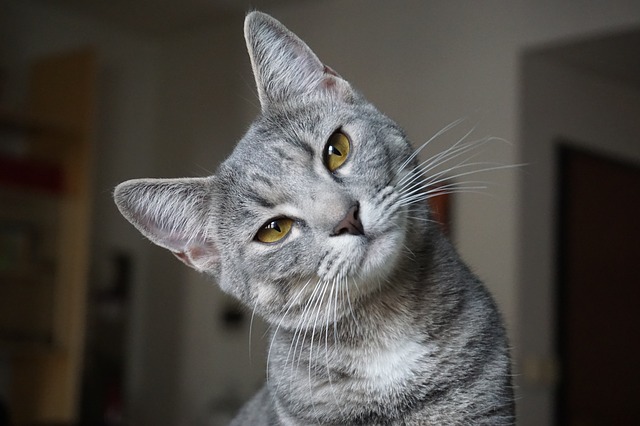
Feliway is generally considered safe since it is a synthetic version of a natural pheromone secreted by cats. Even though it is a synthetic substance its chemical structure is exactly the same as natural feline facial pheromones.
While synthetic feline facial pheromones are generally considered safe, every cat is different so you should always monitor them for any adverse reactions. In some cases, feline facial pheromones won’t even have any effect on a cat at all. Other cats might see the pheromone as a challenge to their territory, which might lead them to spray or mark the source of the scent.
Live Veterinarian Chat
Can Feliway make Cats Sick
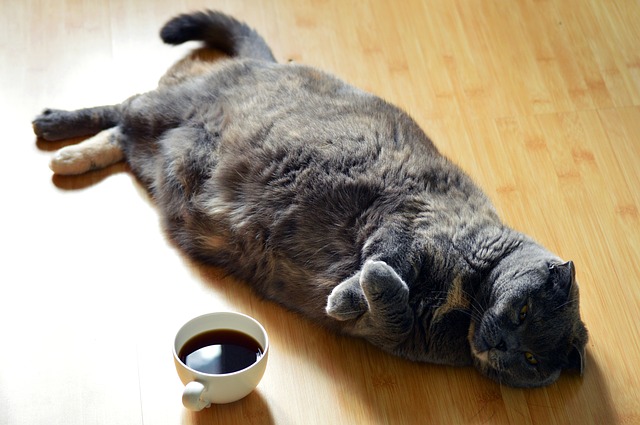
The aerosol versions of Feliway have a very low likelihood of making a cat sick. The only major change in behavior that might occur is increased grooming and an enhanced interest in food. A study found that cats exposed to feline facial pheromones ate significantly more food over a 24 hour period. And they were much more likely to groom themselves and rub their face in the presence of feline facial pheromones.
The findings of this study indicate that problems associated with overfeeding and excessive grooming may arise when a cat is exposed to feline facial pheromones. The health risks associated with overeating range from digestion problems to obesity-related disorders. As long as you portion your cat’s meals appropriately, none of these problems should be a cause for concern.

The increase in grooming noticed in cats exposed to feline facial pheromones could also lead to some problems. If a cat is grooming and licking themselves more often, they will be much more likely to have a hairball problem. This problem can be ameliorated by brushing and bathing your cat to free up the loose hairs before they end up being ingested by your cat.
One other method of delivery of feline facial pheromones that might cause a problem is a calming collar. Cat pheromone collar side effects are generally the same as aerosol pheromones but there are some minor issues that still might crop up when you use a collar.
The thing you have to watch out for is a cat chewing up the collar and swallowing the pieces. The pheromones can be so attractive to some cats it can cause them to chew on a collar. The pieces of the collar could cause obstructions in a cats airway or intestines. This is generally not a problem, but if you see a cat chewing on a pheromone collar take it away immediately just to be safe.
Does Feliway make Cats Sleepy
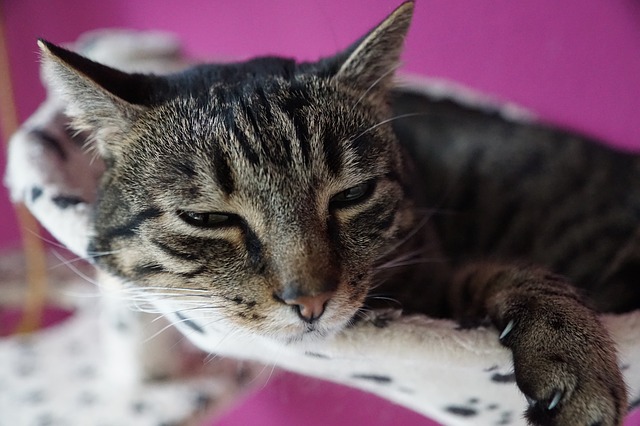
Feline facial pheromones produce a mild calming effect and don’t act as a sedative on cats. A cat will generally become more relaxed in the presence of Feliway but it won’t knock them out. So if you need a sleep aid for your cat you will most likely need something stronger than feline facial pheromones.
You may notice though, that when your cat is exposed to feline facial pheromones that they want to cuddle more or just relax. And if they were already tired and ready for a nap the pheromones might make it easier for them to get a little sleep.
Can Feliway Cause Headaches

For most people, aerosol feline facial pheromones won’t cause any headaches or sinus issues. The only thing that might cause a problem is the paraffin oil in the diffuser. This oil is similar to the oil used in candles, so if you are allergic to paraffin the diffuser might cause headaches in very sensitive individuals.
As with any chemical substance every person’s reaction will be different, so care should be taken when introducing a feline facial pheromone product into your house. If you already know you are sensitive to air fresheners or candles, you might want to use the spray bottle or collar on your cat.
Can Feliway Affect Humans

The question of whether cat pheromones affect humans or not is one that commonly crops up. Pheromones, in general, are species-specific, so a cat’s pheromones will have little to no effect on a human. A cats sense of smell and olfactory system is way more powerful than a humans in the first place, and we even lack the receptors in our nose that could even detect a cat’s pheromones.
Since a cat is much more sensitive to smell than we are, the scents we emit most likely affect them much more than any of their scents affect us. With our limited sense of smell, we are pretty much just sensitive to urine smells and other stronger scents that emanate from our cats.

